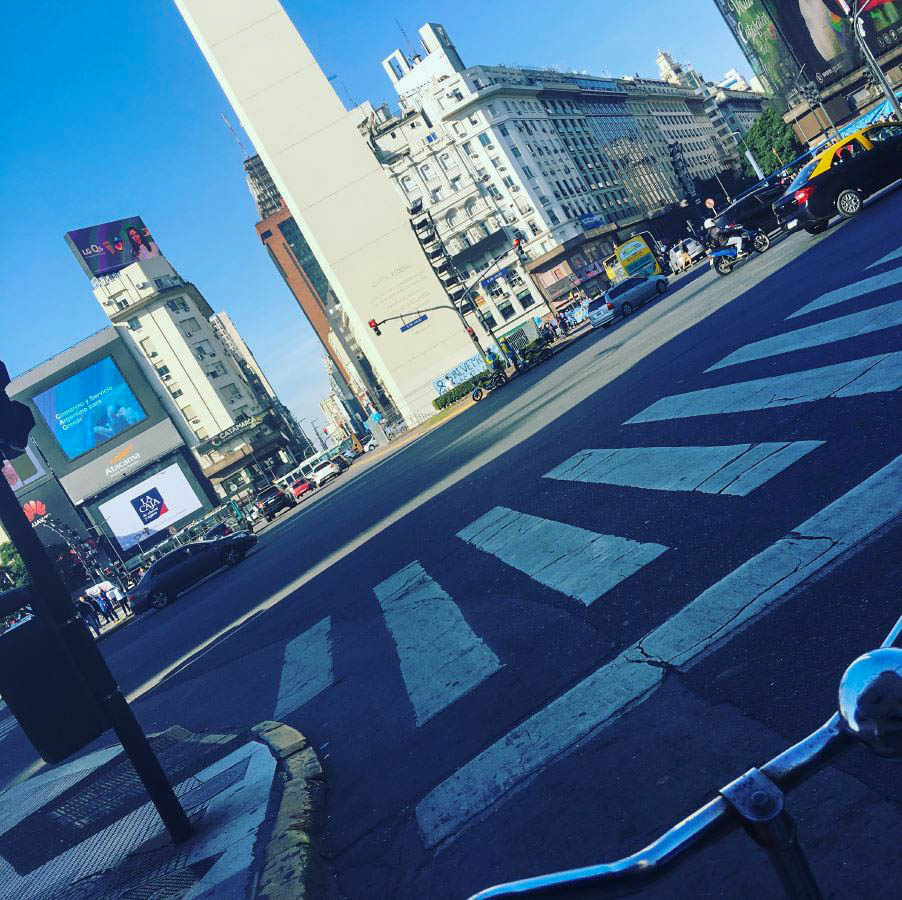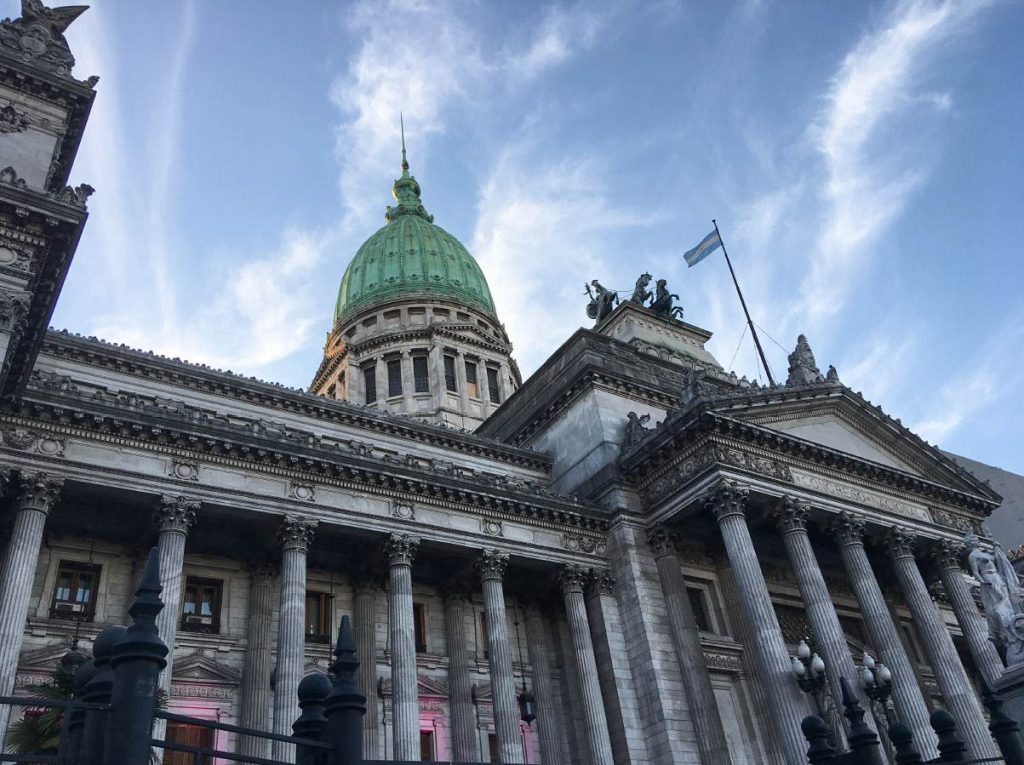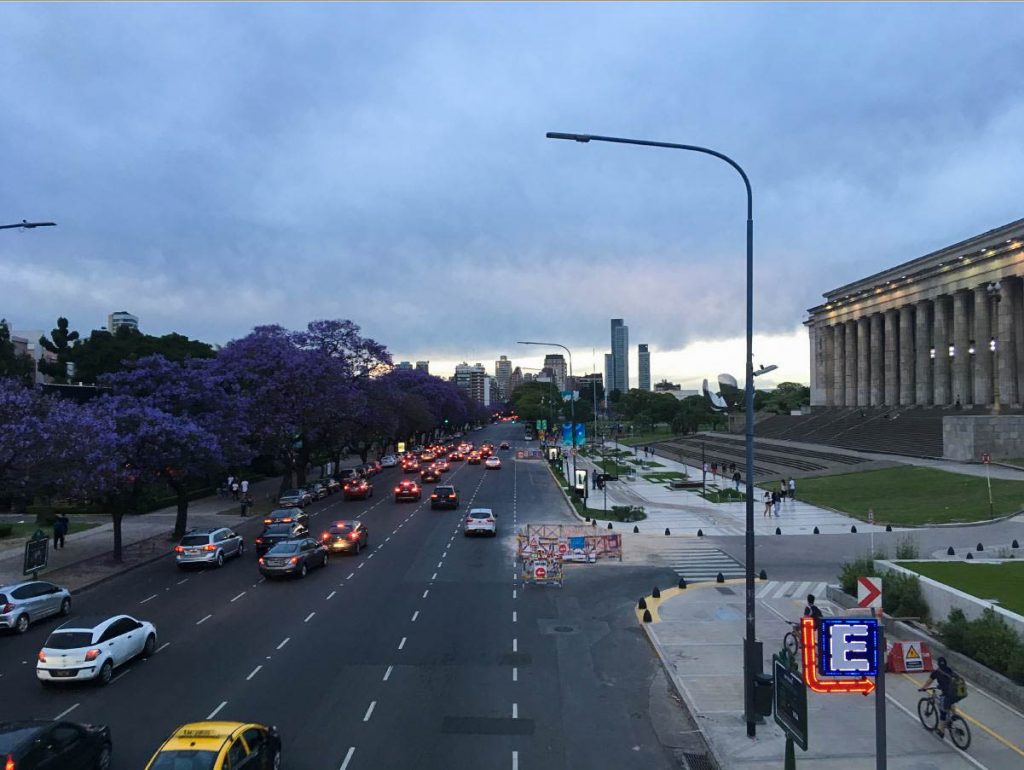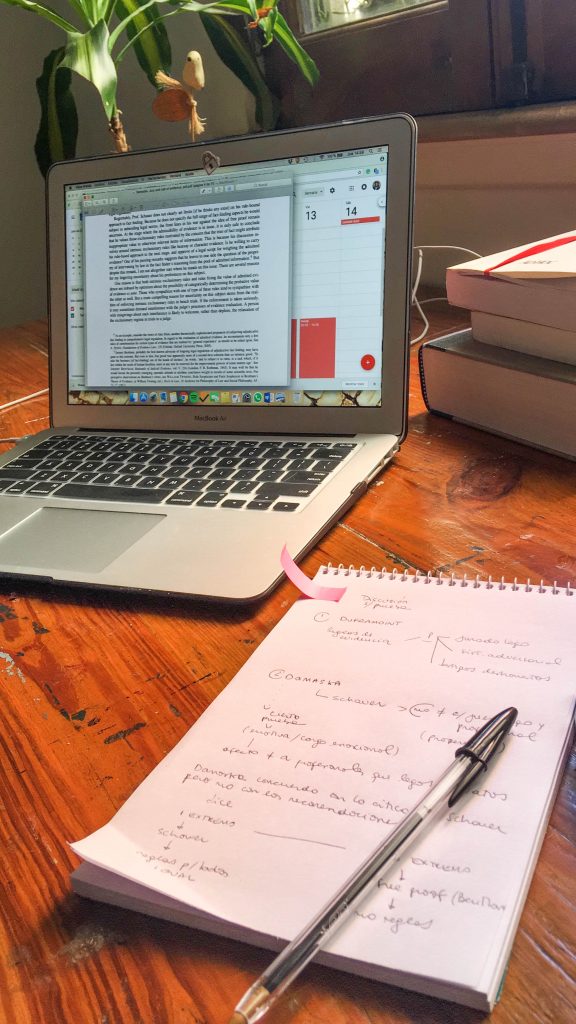By María Dinard, LL.M. ’18

As a public interest lawyer and human rights activist, I’ve always tried to stay focused on my objectives: I wanted to be part of the community that works to change the criminal justice system. This is why for several years I’ve worked in one of the most prominent Argentinean NGOs and also why I chose to improve my skills at CLS as a Human Rights Fellow.
During my time at Columbia, I experienced how the U.S. criminal justice system works, empowering some while criminalizing others. At the Bronx Defenders Externship, I learned that, in general terms, those who are in a vulnerable situation, such as migrants and people from low-income communities, are most likely to be caught by the system, and in order to move on with their lives and not lose their jobs, housing, etc., end up taking pleas, even for crimes they did not commit. Meanwhile, in the academic arena, I had the chance to learn about some specifics of the U.S. criminal procedure law, such as the rules of evidence and its impact on criminal procedures.

This experience helped me to realize that many of these problems are also faced in Argentina, such as the great number of pleas and the innocents convicted. Thus, I became concerned about Argentinean criminal procedure, which has experienced many changes over the last 20 years and is still being reformed, yet is not seeing such development regarding evidentiary rules.
By the middle of my second semester at Columbia, I heard about the public interest fellowships and realized they were a great opportunity to continue developing my career in the public interest sector. I was so happy when CLS notified me that they would be granting me one of the scholarships because I knew it would help me to continue working on criminal justice issues back in Buenos Aires .

So I started working on my project, trying to combine both the Argentinean and U.S. experience to create a well-balanced scheme that would allow me to put into practice everything I’d learned. I started by reaching out to a former professor at the University of Buenos Aires, who is a member of INECIP, a public interest institution dedicated to criminal justice issues both in Argentina and Latin America. He was enthusiastic about the idea of hosting me for my project financed by CLS.
To tackle this challenge, I decided to work on cases where innocent people were convicted. In this regard, the U.S. experience made me realize the boundaries of Argentinean criminal procedure regarding rules of evidence. Analyzing the factors that contribute to innocents getting convicted in the U.S. (such as eyewitness misidentification, improper forensics, false confessions), and comparing them to the Argentinean ones (use of anonymous informants, lack of scientific evidence, police misconduct) made me wonder about the need for certain rules of evidence to limit the use of low-quality evidence to support convictions and, at least, restrain those factors that can be worked out from the procedural perspective. Even though we can’t assure it because of the lack of statistics, human rights activists and public defenders state that the use of hearsay statements is one of the main causes of judicial errors. Now, I am working on an essay analyzing these topics, in order to think of new rules to face old problems with renovated ideas, and, most importantly, with the purpose of improving a system that requires a lot of work to be done.

Researching these problems, participating in the academic arena through conferences, building a strong network among defense attorneys and public defenders, teaching classes to college students and public defenders, are just some of the activities I have been happy to develop during this time.
I have to admit that I’ve been lucky to be able to do what I love so far, and the Public Interest Fellowship has been one step in my public interest career. Fairness and Justice are what moves my work, my ambition, and my devotion. In a world that, at least, some take profit at the expense of the vulnerable, we are compelled to react.